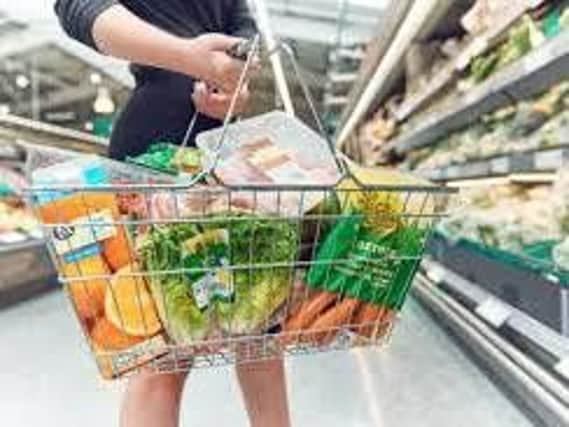Morrisons bucks the trend as inflation leaps


Kantar Worldpanel said the price of staples such as butter, fish, tea and skincare all rose in the 12 weeks to March 26.
The 2.3 per cent jump in inflation follows a 1.4 per cent increase in the 12 weeks to February 26 and Kantar warned that it will accelerate over the coming months.
Advertisement
Hide AdAdvertisement
Hide AdFraser McKevitt, head of retail and consumer insight at Kantar Worldpanel, said: “Inflation is currently 2.3 per cent and we think by June it will be 3 to 4 per cent.
“After that it’s hard to forecast. It depends on trading terms and the hedging that manufacturers and retailers put in place.”
The inflation rise cost households an extra £21.31 and Kantar said shoppers are likely to switch to own label from branded goods as consumers tighten their belts.
“Inflation will change how people shop,” said Mr McKevitt.
“People will seek cheaper options - either cheaper brands of cheaper retailers. We are already seeing people choose cheaper brands.”
Advertisement
Hide AdAdvertisement
Hide AdSales of own label products rose 5 per cent over the past 12 weeks.
“Own label is really important,” said Mr McKevitt.
“It can offer higher margins than brands. Morrisons will talk about the provenance of its food while Sainsbury’s has a strong food heritage.”
Both firms hit record high market shares and now have a collective 11.7 per cent share of the market.
Advertisement
Hide AdAdvertisement
Hide AdLidl’s sales rose 15 per cent over the 12 week period while Aldi saw a 14.3 per cent rise, although both have been boosted by new store openings.
“Aldi and Lidl are set to do well. They are opening more stores and they are not anywhere near saturation level,” said Mr McKevitt.
Lidl and Aldi attracted an additional 1.1 million shoppers between them over the 12 week period.
Aldi‘s UK CEO Matthew Barnes said: “As inflation begins to stretch household budgets consumers will increasingly look for opportunities to reduce their grocery bills.”
Advertisement
Hide AdAdvertisement
Hide AdBradford-based Morrisons saw growth of 0.3 per cent following a strong performance in fresh and chilled convenience food.
Market leader Tesco saw a 0.4 per cent decline, number two player Sainsbury’s was down 0.7 per cent and number three player, Leeds-based Asda saw a 1.8 per cent fall.
Part of this decline was due to the late timing of Easter this year.
“We are still waiting for Asda to return to growth although it’s not as bad as it has been,” said Mr McKevitt.
Advertisement
Hide AdAdvertisement
Hide Ad“Asda is concentrating on the brand. If trends continue we will see Asda return to growth.”
Kantar said the grocers are starting to pass on higher prices to shoppers.
“No supermarket wants to pass price rises on quicker than competitors, but we are starting to see prices rise,” said Mr McKevitt.
“All the grocers will be very conscious of the risk. They will work hard to have cheaper options so people won’t feel the need to walk out the door.
Advertisement
Hide AdAdvertisement
Hide Ad“Supermarkets will be looking at how they can work more efficiently and looking at terms with suppliers.”
He said that if the economy slows down or inflation rises quickly, people may cut back on eating out and that would benefit the grocers’ luxury ranges. It would also boost dining in deals.
“They make cost £10, but that’s a lot cheaper than eating out,” said Mr McKevitt.